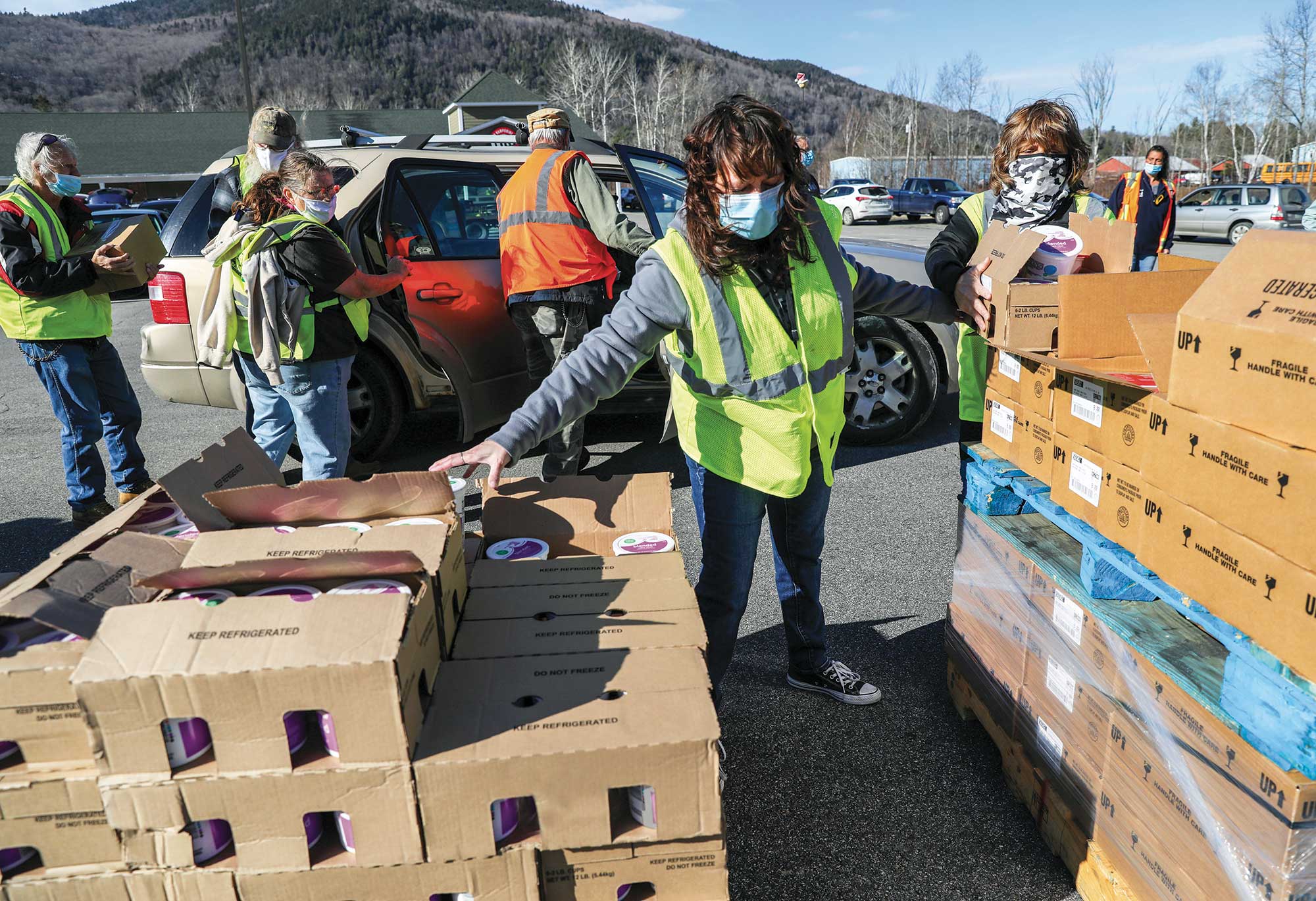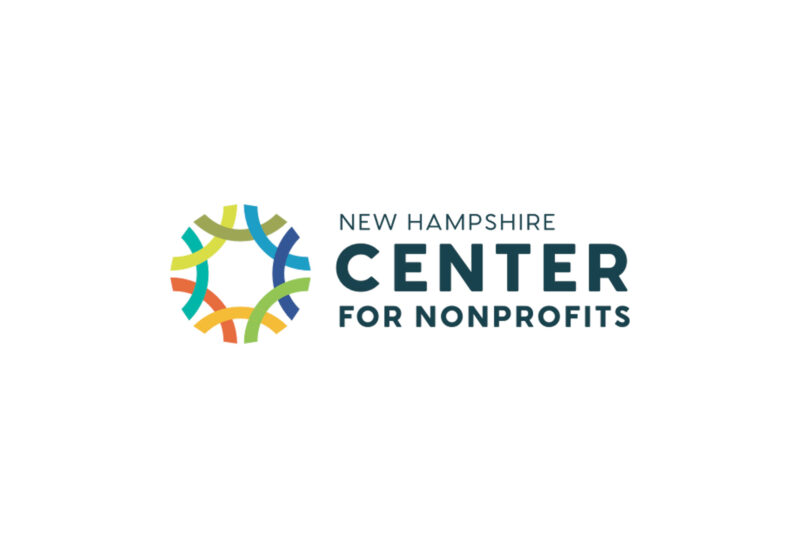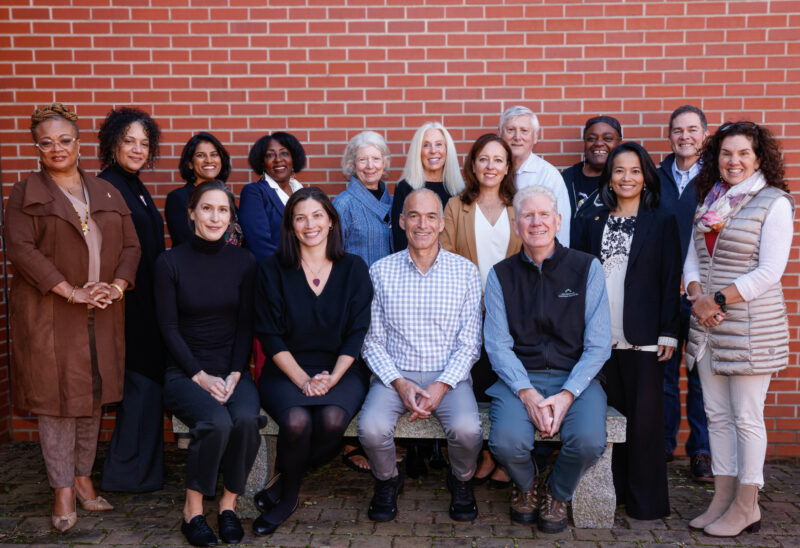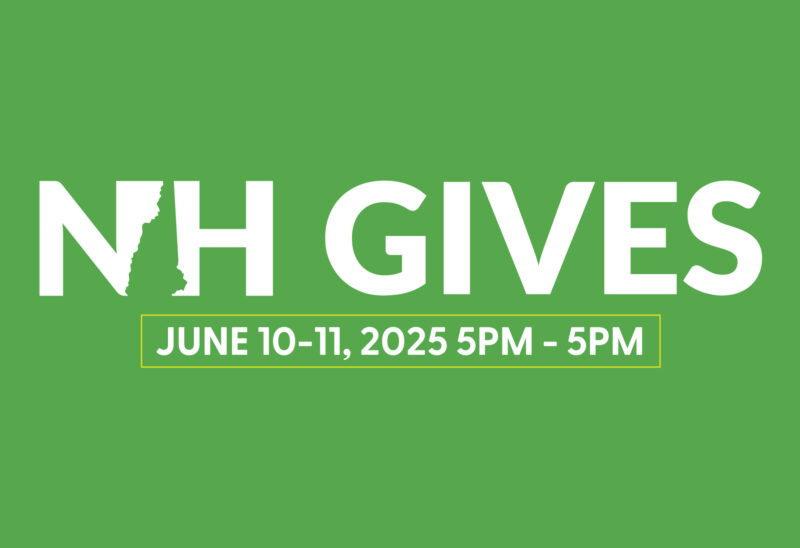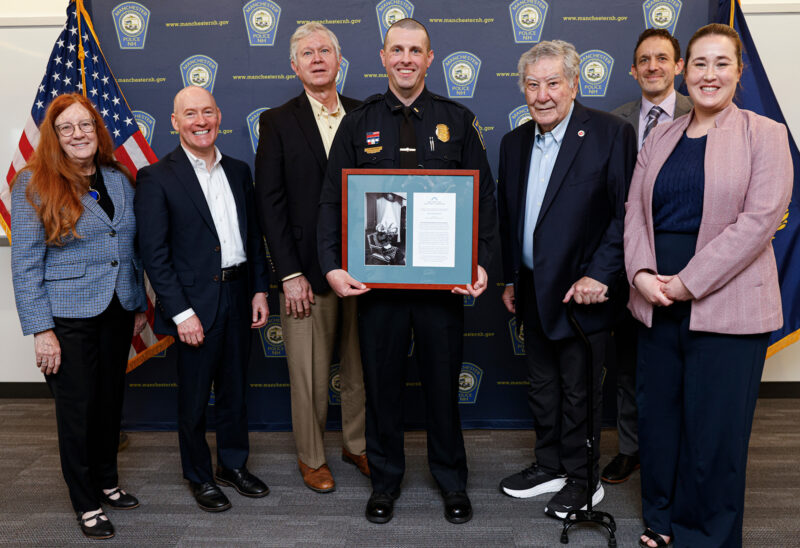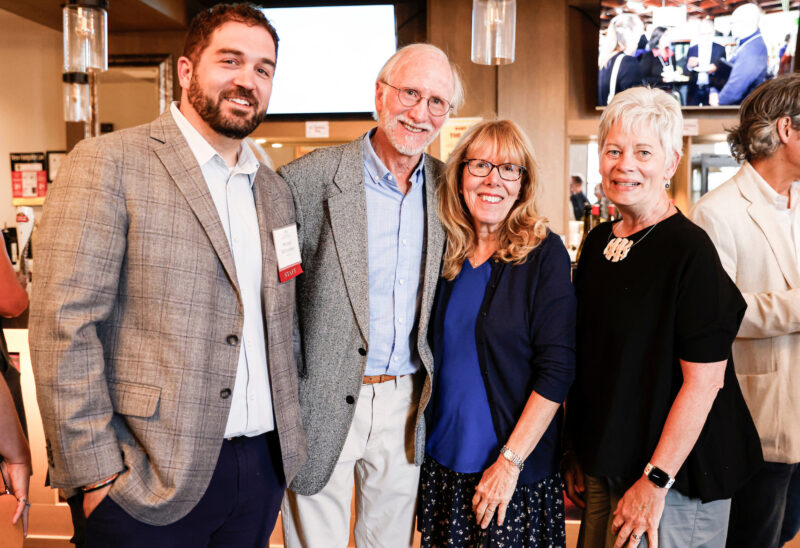Martha Stone runs Cross Roads House, a shelter in Portsmouth for people who are homeless. Some of those people also have jobs where they do things like work in grocery stores. Some have children. Some are elderly.
When COVID-19 hit, Stone had to figure out how to continue providing them all safe housing, and meals. She had to figure out how to make space for children to do remote learning and how to isolate people with health conditions.
She and her staff had to make all of that happen basically overnight. And they did.
“People who dedicate their careers to serving the homeless are everyday superheroes — so they’re not really afraid of the impossible,” said Elissa Margolin of Housing Action New Hampshire. “You really see their tenacity and their commitment and their strength come out at a time like this. They didn’t crumble.”
While Margolin was talking about people who help the homeless, the same could be said about nonprofit workers who care for people with disabilities, who feed the hungry and run child care centers and protect victims of domestic violence and mentor kids in need — and do thousands of other things that support and strengthen our communities.
Everyday superheroes.
And all over the state, those everyday superheroes have masked up, gloved up and gone on meeting their critical missions for New Hampshire through this time of extraordinary crisis.
A grant from the New Hampshire Charitable Foundation’s Community Crisis Action Fund to Housing Action New Hampshire helped the shelter that Stone runs — and others, from Keene to Nashua — keep providing services through this time of crisis.
From the start of this public health crisis, the Foundation has focused on supporting nonprofits to reduce the pain and hardship on our most vulnerable neighbors — struggling families, hungry children, seniors, underserved people in every community; and working with public and private partners to reduce the impact on critical health care and social service systems.
Foundation staff reached out immediately to nonprofit partners to learn what was needed most urgently, and where. On March 20, the Foundation created the Community Crisis Action Fund to help respond to the need, to which generous people responded with $4.2 million in donations. One hundred percent of those contributions are going out into the community. The Foundation also released installments of multiyear grants early and allowed for maximum flexibility with current grant dollars; redirected grant dollars for COVID response; and worked in partnership with the New Hampshire Center for Nonprofits to help create a record-breaking year for the oneday giving event known as NH Gives. With the New Hampshire Center for Nonprofits and Community Development Finance Authority, the Foundation advocated for federal relief for nonprofits and created a grant program to administer the state’s Nonprofit Emergency Relief Fund, helping to get much-needed federal relief dollars to nonprofits large and small. The Foundation continues to work closely with nonprofits and other partners to address evolving community needs.
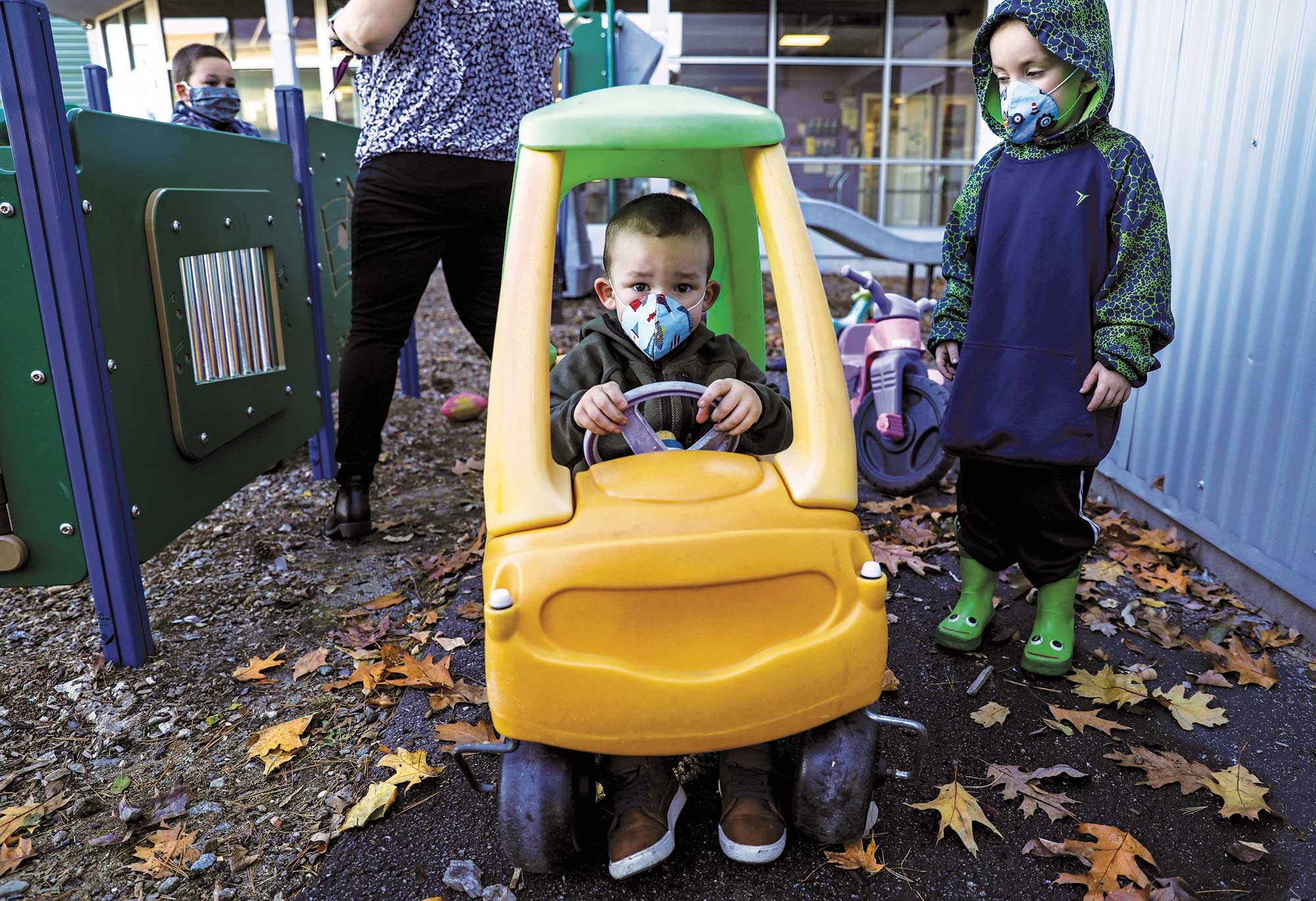
A family plays outside at Cross Roads House in Portsmouth. (Photo by Cheryl Senter.)
“New Hampshire’s nonprofits have met this moment with grace and ferocity and an unwavering commitment to our communities,” said Richard Ober, president and CEO of the Foundation. “And they have often done so when continuing to show up for work meant significant personal sacrifice and risk. The Charitable Foundation is incredibly proud to work in partnership with them and support them. I really do not know where our communities would be right now without the nonprofit sector.”
Here are just a few examples:
When the COVID-19 public health crisis hit, the Foundation worked with the state to quickly establish an emergency child care collaborative that kept emergency centers open so they could care for the children of essential workers — and to get those centers the supplies and resources they needed to do so.
Early-childhood educators — who do challenging work for very modest pay — have long been the unsung heroes who keep the economy ticking, educating and caring for young children while allowing parents to work. Now, at centers across the state, they continued to work, caring for the children of health care professionals and other hospital staff, first responders, pharmacy and grocery store workers, workers in mental health facilities and more.
The pandemic has hit the earlychildhood sector hard, forcing center closures — including some important centers in New Hampshire for the training of early-childhood educators.
Demand for food from food pantries has surged during the pandemic.
The New Hampshire Food Bank has responded, with staff working tirelessly to meet the demand in every corner of the state.
Meals on wheels programs have also adapted their operations: Shifting to delivering frozen meals (and providing microwaves for people who did not have a way to heat them up), and doing wellness checks via telephone.
When schools closed, nearly all school districts started delivering school breakfast and lunch on school buses. Nonprofits stepped up as well, expanding weekend meals programs, beginning summer meals programs early and serving substantially more families.
The New Hampshire Coalition Against Domestic and Sexual Violence and its 13 member organizations — which, together serve 15,000 people across New Hampshire every year — have taken swift action throughout the crisis, fast-tracking new technologies, working with local authorities and systems, and adapting practices to help keep people safe. New technology allows victims to contact crisis centers via a protected web-chat platform, so they can call for help in silence, and without leaving a digital trace on a device. The technology became critical when victims and abusers were required to shelter in the same space.
For many community college students, completion of their degree or certificate program represents a significant step up on the economic ladder. Many are adult students with children of their own. The vast majority work — some at multiple jobs — while completing their studies. For many, all of that adds up to extremely tight budgets, full schedules and complicated logistics. Many students — whose jobs were in industries like hospitality and food service — were laid off. Some had no computers or wifi at home to continue with remote learning. Already-tight budgets were stretched to breaking.
The Foundation made $65,000 in grants to the Foundation for New Hampshire Community Colleges to be distributed to students to cover emergency needs — anything from tuition assistance to help paying for food and utilities — to help keep them on-track to degree completion.
Across the state, nonprofit community health centers and recovery centers fundamentally altered their practice models overnight: turning to telemedicine to continue to provide services while keeping people safe — and the practice is here to stay. Grants from the Community Crisis Action Fund helped them assemble the technology needed to do so.
Staff at Easter Seals of New Hampshire saw a spike in need among elders they serve — many of whom have chronic health conditions and extremely limited incomes.
A grant from the Community Crisis Action Fund allowed the organization to create The Helping Hands Relief Fund to support people over 60 who have low incomes and for whom other financial assistance is not available. The fund covers essential goods and services for basic needs to help protect the health and well-being of people who face compounded risk from COVID-19.
New Hampshire Legal Assistance, which represents people with low incomes in civil cases — including eviction and foreclosure, unemployment and some domestic violence cases — is facing increased demand for services as the economic fallout of the pandemic continues to ripple out. A grant from the Community Crisis Action Fund is helping Legal Assistance to meet that need, and a grant from the Foundation’s Neil and Louise Tillotson Fund is helping to sustain the operations of the organization’s satellite office in Berlin.
Nonprofits have come to the rescue in thousands of ways during this time of unprecedented need.
“The effects of this crisis are still being felt, and will be felt for years,” Ober said, “and nonprofits will be critical to our shared success as we rebuild from this.”

